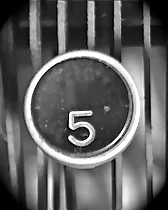5 Hot Books: Abraham Lincoln as Politician, the Roots of the Opioid Crisis, and More
/1. All the Powers of Earth: The Political Life of Abraham Lincoln, Volume III, 1856-1860 by Sidney Blumenthal (Simon & Schuster)
Blumenthal begins the third volume of his masterful five-part series on Lincoln’s political career with Franklin Pierce’s presidential landslide election, and Stephen A. Douglas making noise, and conflict on the distant plains. He ends with Lincoln’s first presidential election victory with less than 40 percent of the vote as passion for secession mounts. Blumenthal, writing with his characteristic panache, closes with the Charleston Mercury extra edition: “The Union Is Dissolved!” Presentists may find today’s fractures reflected in the past, but that should not detract from Blumenthal’s achievement of writing serious history that jumps off the page.
2. Fentanyl, Inc: How Rogue Chemists Are Creating the Deadliest Wave of the Opioid Epidemic by Ben Westhoff (Atlantic Monthly)
As Americans die of opioid overdoses, investigative reporter Westhoff reveals the role that fentanyl plays in this addiction crisis that has gone global. Extensively reported and vividly written, Westhoff finds the Belgian chemist who developed fentanyl a half-century ago and traces the synthetic opioid’s hijacking into an illicit, dangerous street drug, goes undercover to infiltrate a fentanyl lab in China, and exposes how this vast industry promotes these synthetic drugs on a global scale. Finally, Westhoff elevates his impressive examination of the opioid epidemic by reporting on the U.S. government’s failed war on drugs and the promise of innovative “harm reduction” policies that recognize that “Just Say No” is a losing proposition.
3. Indebted: How Families Make College Work at Any Cost by Caitlin Zaloom (Princeton University Press)
Recent headlines about cheating for admission to college may have obscured the far-reaching college affordability crisis, which Zaloom, a New York University economic anthropologist who studies the culture of finance, illuminates in her smart new book. She focuses on the counterintuitive reality that middle-class parents and students take on such enormous debt that they jeopardize their futures. The force of Zaloom’s book comes from her conversations with parents and their college-eager children from across the country, and deeper relationships with a small set who convey the anxiety, frustration, and fears involved with the financial trade-offs they must make to pay for college.
4. The Sweetest Fruits by Monique Truong (Viking)
The globetrotting 19th-century writer Lafcadio Hearn may be at the heart of Truong’s entrancing novel, but it derives its power from the sequence of three women who loved him. Truong brings these women, along with Hearn’s biographer, to life as Hearn re-creates himself while he moves from remote Greece through Reconstruction-era, border state America, and finally into the Japan of the Samurais. Truong’s smart novel, told in evocative, lush language, raises important questions of slavery and colonization.
5. The Secrets We Kept by Lara Prescott (Knopf)
This thrilling novel shifts between the Soviet Union and Washington and the tense struggle over publication of Boris Pasternak’s once-controversial, now classic novel Dr. Zhivago. Prescott has a wonderful command of the battle over the book, how it was received in Russia and how it became entwined with Cold War diplomacy. But she imparts a new energy by telling the story through the women who worked as secretaries but fed information to the CIA as well as through Pasternak’s mistress, Olga, and made that cold, bitter Russian terrain a steamy intrigue-filled place.










